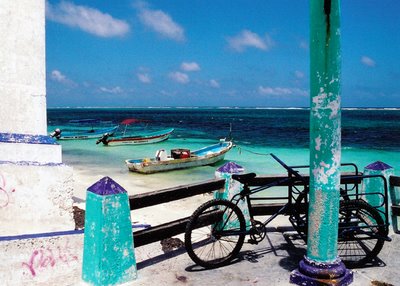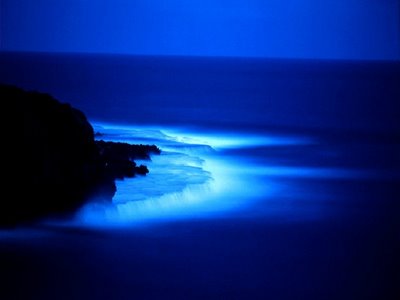
By Dilys Sun
During my graduation trip to Mexico, I talked with a Mayan philosopher on the beach of Puerto Morelos. He sat on a dead, damp log, and chain-smoked with me. I did not smoke often, so I had to borrow cigarettes. He provided “luxury” ones, called Nat Sherman.
Mayans are the majority of this small Mexican town near Cancun. It has Cancun’s beauty but not the overwhelming number of American tourists. That’s why I loved it so much. The water of Puerto Morelos is clear and turquoise – the real Caribbean color. I didn’t see turquoise that night with the philosopher though. We were on the beach at around eleven; the water was black as if it had long been dead.
 He was not a local. He was my Caucasian friend who might have discovered the wisdom of the ancient Mayans. Why else could he teach me such philosophical lessons? “Cup your hand around the cigarette so that it won’t burn out so quickly,” he told me. He was right. I barely smoked any of the first one. The second one lasted a whole lot longer.
He was not a local. He was my Caucasian friend who might have discovered the wisdom of the ancient Mayans. Why else could he teach me such philosophical lessons? “Cup your hand around the cigarette so that it won’t burn out so quickly,” he told me. He was right. I barely smoked any of the first one. The second one lasted a whole lot longer.“I don’t like talking when I sit like this.” He whispered into the wind, not looking at me at all. I nodded and mumbled, “I understand.” Then we were both silent for a long time. The silver moon shined on the water, revived it a little by giving it a shimmering veil. The water was still very quiet. It made me nervous.
A few Mexicans crowded under a streetlight on a concrete platform. They were laughing and shouting, far away but still visible and audible. I looked at them every so often to ensure myself that I was not swallowed by the darkness on the beach.
“Does not the ocean always make you feel a sense of greatness? It makes you happier and less restrained.” It was cliché, but I really felt that way, so I said it truthfully. However, my philosopher never answered the question. Like all philosophers did, he preferred asking new ones, “Have you ever wondered who is on the other side of the water?”
No, I had never thought about that. The sea always reminded me of nature, and conventional thinking encouraged me to think that way: sky, air, and ocean – the greatness of nature. “Why Cuba, of course, or Florida.” He answered his own question and chuckled. I nodded: yes, this Yucatan town would face Florida or Cuba, two neighboring but drastically different places.
The answer couldn’t be so simple. Why bother asking when the answer can be easily found on an atlas? “What is that person thinking right now?” Another question came out of him. I looked up to think about some kind of answer, instead I found a sky of star.
 "Ever thought about who’s up there in the universe?” I wasn’t referring to any alien. I wished for another human being, one who would think like us. That question killed our conversation because we then started talking about physics instead of philosophy. Everything started to get an answer. We soon got up and left the sea.
"Ever thought about who’s up there in the universe?” I wasn’t referring to any alien. I wished for another human being, one who would think like us. That question killed our conversation because we then started talking about physics instead of philosophy. Everything started to get an answer. We soon got up and left the sea. When I was walking back to my hotel, the question still vibrated inside my head like a ringing bell: who is on the other side of the water? What is that person thinking, what is he like? What were the Mayans and Toltec thinking when they abandoned their glory in Chichen Itza? What are the Cubans like, for real? What is the true freedom of the Americans? Asking questions is always easier than coming up with answers.
Briefly, before we left the beach, I saw some silver dots on the water vibrating in a line. They were supposed to be from fishing boats. Instead of looking ordinary, they looked like the celestial stars. Maybe, I thought, humans are mimicking the glory above. Maybe there is some connection between these two places. Maybe that person up in the sky is asking the same question my Mayan philosopher just asked: who is on the other side of the water?
Dilys Sun, who grew up in western China, moved to San Francisco four years ago at the age of 15. She studied at the San Francisco Waldorf High School and this fall, she joins the class of 2010 at Stanford University.
No comments:
Post a Comment